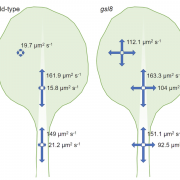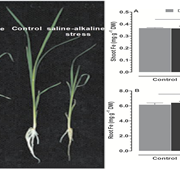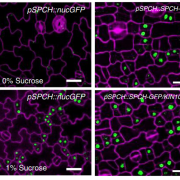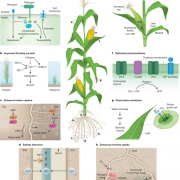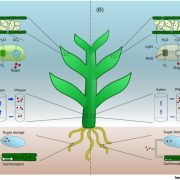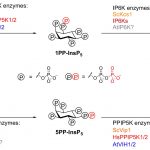Ethylene-mediated nitric oxide depletion pre-adapts plants to hypoxia stress (Nature Comms)
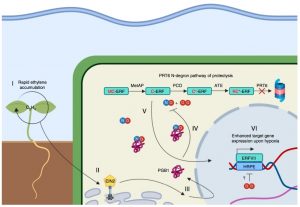 Climate projection models predict an increasingly wetter world with frequent and severe flooding events, causing loss of crops. As it is for other organisms, it is a challenge for plants to stay under water for long periods. However, how plants react to submergence is poorly understood. Environmental perturbations such as submergence are perceived by plants thanks to dynamic changes in gases. For example, oxygen and nitric oxide (NO) control the stability of group VII Ethylene Response Factor (ERFVII) transcription factors. Hartman et al. describe that plants can quickly detect submergence using passive ethylene accumulation and use this signal to induce hypoxia acclimation. The authors propose that ethylene enhances ERFVII stability by increasing the NO-scavenger PHYTOGLOBIN1. This ethylene-mediated NO depletion and consequent ERFVII accumulation prepare cells for impeding hypoxia. The authors proposed a molecular mechanism for the regulation of flooding survival and identified key regulatory targets for the perception of early stress. (Summarized by Francesca Resentini) Nature Comms. 10.1038/s41467-019-12045-4
Climate projection models predict an increasingly wetter world with frequent and severe flooding events, causing loss of crops. As it is for other organisms, it is a challenge for plants to stay under water for long periods. However, how plants react to submergence is poorly understood. Environmental perturbations such as submergence are perceived by plants thanks to dynamic changes in gases. For example, oxygen and nitric oxide (NO) control the stability of group VII Ethylene Response Factor (ERFVII) transcription factors. Hartman et al. describe that plants can quickly detect submergence using passive ethylene accumulation and use this signal to induce hypoxia acclimation. The authors propose that ethylene enhances ERFVII stability by increasing the NO-scavenger PHYTOGLOBIN1. This ethylene-mediated NO depletion and consequent ERFVII accumulation prepare cells for impeding hypoxia. The authors proposed a molecular mechanism for the regulation of flooding survival and identified key regulatory targets for the perception of early stress. (Summarized by Francesca Resentini) Nature Comms. 10.1038/s41467-019-12045-4


